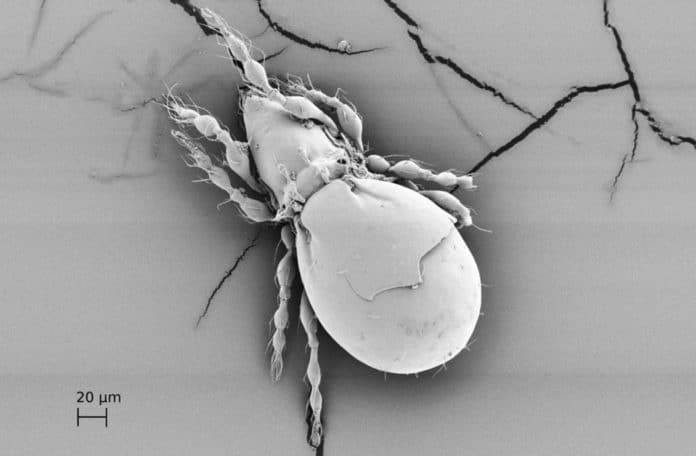Until now, scientists believed that animal species could not survive for very long without sexual reproduction. But a new study contradicts that belief- suggesting asexual reproduction can be successful in the beetle mite Oppiella nova.
This phenomenon is known as the Meselson effect, which describes a characteristic trace in an organism’s genome that suggests purely asexual reproduction.
The study by an international research team has demonstrated that animals can survive over very long periods entirely without having sex. Scientists showed the so-called Meselson effect in animals in the ancient asexual beetle mite species O. nova for the first time.
The team includes zoologists and evolutionary biologists from the Universities of Cologne and Göttingen, as well as the University in Lausanne (Switzerland) and the University of Montpellier (France).
Via asexual reproduction, species produce genetic clones to introduce genetic variance into their genomes and thus adapt to their environment during evolution.
But, the absence of sexual reproduction and, in this way, mixing in asexual species causes the two genome duplicates to gather mutations or changes in genetic information freely and become progressively unique within one individual.
Prof. Tanja Schwander from the Department of Ecology and Evolution of the University of Lausanne said, “That may sound simple. But in practice, the Meselson effect has never been conclusively demonstrated in animals – until now.”
Scientists collected different populations of Oppiella nova and the closely related but sexually reproducing species Oppiella subpectinata in Germany and sequenced and analyzed their genetic information. Overall, it was a Sisyphean task.
To analyze the genome data, scientists especially designed a computer program. They succeeded in proving the Meselson effect.
Bast said, “Our results clearly show that O. nova reproduces exclusively asexually. When it comes to an understanding of how evolution works without sex, these beetle mites could still provide a surprise or two. The results show: the survival of a species without sexual reproduction is quite rare but not impossible. The research team will now try to find out what makes these beetle mites so special.”
Journal Reference:
- Alexander Brandt, Patrick Tran Van et al. Haplotype divergence supports long-term asexuality in the oribatid mite Oppiella nova. DOI: 10.1073/pnas.2101485118
